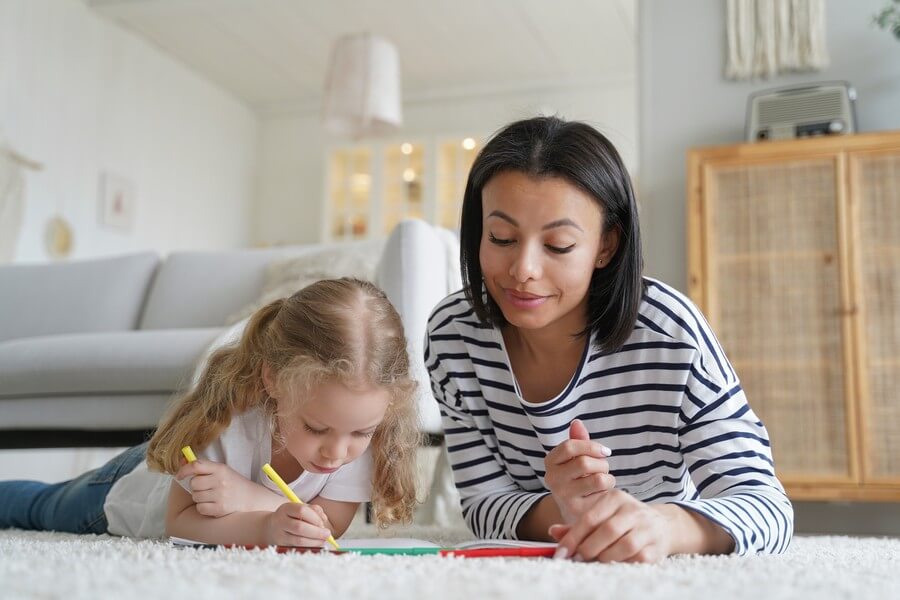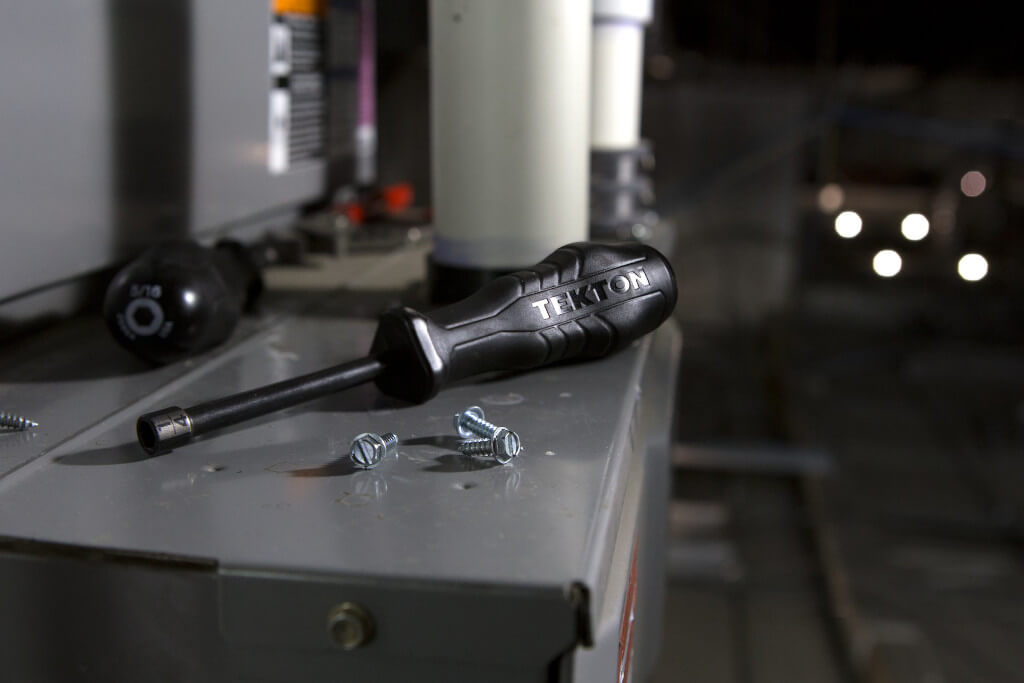With summer on the horizon, it’s time to prepare your home for the increase in foot traffic, dust, and humidity. Summer often brings a more active household, whether from kids home during school breaks, pets spending more time indoors, or frequent social gatherings. This uptick in activity can cause carpets to accumulate dirt and wear down faster. To keep your carpets looking their best during the warmer months, a combination of deep cleaning, regular maintenance, and seasonal adjustments is key.
Deep Cleaning for a Fresh Start
Before summer hits, give your carpets a deep clean. Winter tends to leave carpets embedded with dust, dirt, and other debris that regular vacuuming may not reach. A deep clean will remove these contaminants and ensure your carpets not only look fresh but also help improve indoor air quality. Removing the grime that has built up over the colder months gives your carpets a fresh start for summer.
How often should I deep clean my carpets during the year?
Deep cleaning is recommended at least twice a year, ideally before summer and winter. This removes the dirt and allergens accumulated over the previous season, ensuring your carpets are fresh for the months ahead.
Can I deep clean carpets myself or should I hire a professional?
While DIY methods can be effective for surface cleaning, professional deep cleaning reaches deeper layers of your carpet, removing embedded dirt and bacteria that home cleaners often miss.
What’s the best way to prepare for a deep carpet clean?
Before a deep clean, vacuum the carpets thoroughly to remove surface dust and debris. Move furniture if possible to allow for a more comprehensive clean, and ensure the room is well-ventilated.
How long should I wait to walk on the carpet after a deep clean?
It’s best to wait 4-6 hours before walking on freshly cleaned carpets to allow them to dry properly. You can speed up drying by opening windows or using fans.
Allergy Prevention in High Pollen Season
Summer is peak pollen season, and carpets can act as traps for allergens like dust, pollen, and pet dander. Regular vacuuming and deep cleaning are crucial to keep these allergens under control. During summer, vacuum carpets at least twice a week, using a vacuum with a HEPA filter to capture small particles that cause allergic reactions. If possible, consider keeping windows closed during high-pollen days to prevent outdoor allergens from settling into your carpets.
How can I reduce the amount of pollen in my home during the summer?
Keep windows and doors closed on high-pollen days, use doormats to prevent tracking pollen indoors, and clean air filters in your home’s HVAC system regularly.
Does vacuuming really help reduce allergens in carpets?
Yes, but using a vacuum with a HEPA filter is crucial, as it traps smaller particles like pollen, dust mites, and pet dander that may otherwise be missed.
What time of day is best to ventilate my home to avoid pollen?
Pollen counts tend to be lower in the early morning or late evening, so these are the best times to air out your home without introducing too many allergens.
How can I tell if my carpet is contributing to my allergies?
If your allergy symptoms flare up when you’re at home or immediately after vacuuming, it could be a sign that your carpet is trapping allergens that need to be professionally cleaned.
Control Humidity Levels
Summer humidity can lead to moisture being trapped in carpets, creating the perfect environment for mould and mildew. To prevent this, control the humidity levels in your home using dehumidifiers or air conditioning. Carpets in high-humidity areas, like basements or rooms with poor ventilation, may need extra attention. Be sure to dry any spills immediately and consider running fans to help circulate air and keep carpets dry.
Why is humidity bad for carpets?
Excess moisture can get trapped in carpet fibres, leading to mould, mildew, and bacteria growth, which can damage the carpet and cause health problems.
How can I keep humidity levels low in my home during the summer?
Use air conditioners or dehumidifiers, especially in areas with poor ventilation like basements. Fans and open windows can also help circulate air and reduce moisture build-up.
What should I do if my carpet gets damp from humidity?
Dry the area as quickly as possible using fans or a dehumidifier. If the carpet remains damp for too long, consider professional cleaning to prevent mould growth.
How can I prevent mould from forming under my carpet?
Keep humidity levels below 60% indoors, address any water spills immediately, and ensure rooms are well-ventilated to reduce the risk of moisture being trapped under your carpet.
Rotate Furniture to Prevent Wear
With the increased activity that summer brings, high-traffic areas in your home will likely see more use. To prevent uneven wear on your carpets, rotate furniture regularly. Moving sofas, chairs, and tables slightly every few weeks will ensure that no single area of the carpet is overused, helping to maintain a more uniform look and prolonging the life of your flooring.
How often should I rotate my furniture to prevent carpet wear?
It’s a good idea to rotate your furniture every 3 to 6 months. This prevents one area of your carpet from bearing the brunt of foot traffic and furniture weight, leading to uneven wear.
What are the signs of wear on a carpet?
Common signs include flattened fibres, discolouration in high-traffic areas, and areas where the carpet feels harder or rougher due to constant pressure.
How can I protect my carpet from heavy furniture?
Use furniture coasters or pads under the legs of heavy items to distribute the weight more evenly and prevent permanent dents in the carpet fibres.
What should I do if I notice indentations in my carpet from furniture?
You can revive compressed carpet fibres by lightly dampening the area and using a spoon or your fingers to fluff the fibres back up. Placing an ice cube on the dent and letting it melt can also help.
Protect Carpets from Dirt and Sand
Summertime means more outdoor activities, which can lead to extra dirt, sand, and grass being tracked into your home. To minimise the amount of debris that ends up on your carpets, implement a few preventive measures. Place doormats at every entrance and encourage family members and guests to remove their shoes before entering the house. For homes with pets, regularly brushing and wiping their paws can also prevent dirt and mud from being brought inside.
How can I prevent dirt and sand from being tracked onto my carpets during summer?
Place doormats at every entry point, and encourage family members and guests to remove their shoes before walking on the carpet. Regularly clean the doormats to prevent dirt build-up.
What’s the best way to clean up sand from a carpet?
Use a vacuum with strong suction to lift sand from the carpet. Sand can be abrasive and difficult to remove, so frequent vacuuming during summer months is important.
Can outdoor activities increase the risk of damaging carpets?
Yes, outdoor activities often bring in dirt, sand, and moisture, all of which can damage carpet fibres over time. Wipe your shoes or take them off when entering your home to protect your carpets.
Are there specific carpets better suited for homes near the beach or in sandy areas?
Low-pile or loop carpets are easier to maintain in homes near beaches or sandy areas because they don’t trap sand and dirt as easily as thicker, high-pile carpets.
Freshen Up with Natural Deodorisers
Summer’s heat can sometimes make carpets smell musty, especially in areas with pets or where moisture lingers. To keep carpets smelling fresh, sprinkle baking soda across the carpet, let it sit for about 15 minutes, and then vacuum thoroughly. For a natural scent boost, you can add a few drops of essential oils like lavender or lemon to the baking soda before sprinkling it on the carpet. This not only helps eliminate odours but also keeps the air in your home feeling light and fresh.
How can I naturally deodorise my carpets?
Sprinkling baking soda on the carpet and letting it sit for 15-30 minutes before vacuuming can help absorb odours. Adding essential oils like lavender or eucalyptus can provide a fresh, natural scent.
How often should I deodorise my carpets during summer?
If you have pets or notice musty smells, it’s a good idea to deodorise once a month. For general upkeep, deodorising once every few months should suffice.
Are there any risks to using essential oils on carpets?
Essential oils are generally safe in small amounts, but it’s important to test a small, hidden area of your carpet first to ensure there’s no discolouration or damage.
What causes carpets to smell musty in summer?
Increased humidity, moisture from spills or pet accidents, and the build-up of dirt can all contribute to musty smells in carpets. Regular cleaning and good ventilation help prevent this.
Regular Maintenance for Long-Term Care
Throughout the summer months, sticking to a regular cleaning routine is key to maintaining your carpets. Vacuuming a few times a week, addressing spills immediately, and ensuring good ventilation can help prolong the life of your carpets. If you notice any persistent stains or issues with your carpets, it might be time to consider professional cleaning at the end of the season to prepare your home for autumn.
How often should I vacuum my carpets in the summer?
With increased foot traffic during the summer, aim to vacuum high-traffic areas at least twice a week to prevent dirt and allergens from settling deep into the fibres.
What’s the best way to clean up summer spills on carpets?
For most spills, blot the area with a clean cloth and use cool water to rinse the spot. Avoid scrubbing, as this can push the liquid deeper into the fibres, making the stain harder to remove.
How can I protect my carpet from sun damage during summer?
To prevent sun fading, close curtains or blinds during the brightest parts of the day, especially in rooms where sunlight hits directly onto the carpet.
When should I consider a professional carpet cleaning?
If you notice persistent stains, unpleasant odours, or if your carpet feels dull even after regular vacuuming, it may be time to schedule a professional cleaning to restore its freshness.
Special thanks to Mauritz Vermeulen and the team at M&R Carpet Services for sharing their expertise and insights throughout this article. Their decades of experience in carpet care have provided valuable, practical advice on how to keep carpets fresh, clean, and allergen-free, especially during the busy summer months. We appreciate their time and contributions, helping homeowners make informed decisions for a healthier and more comfortable living environment.



